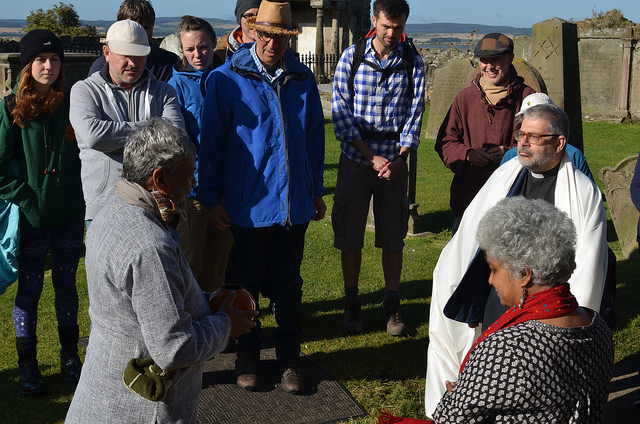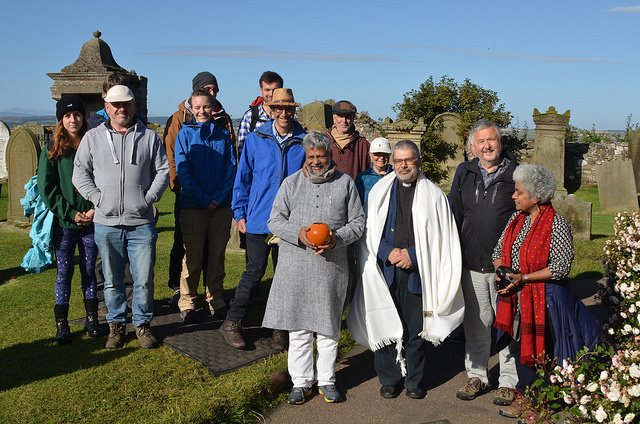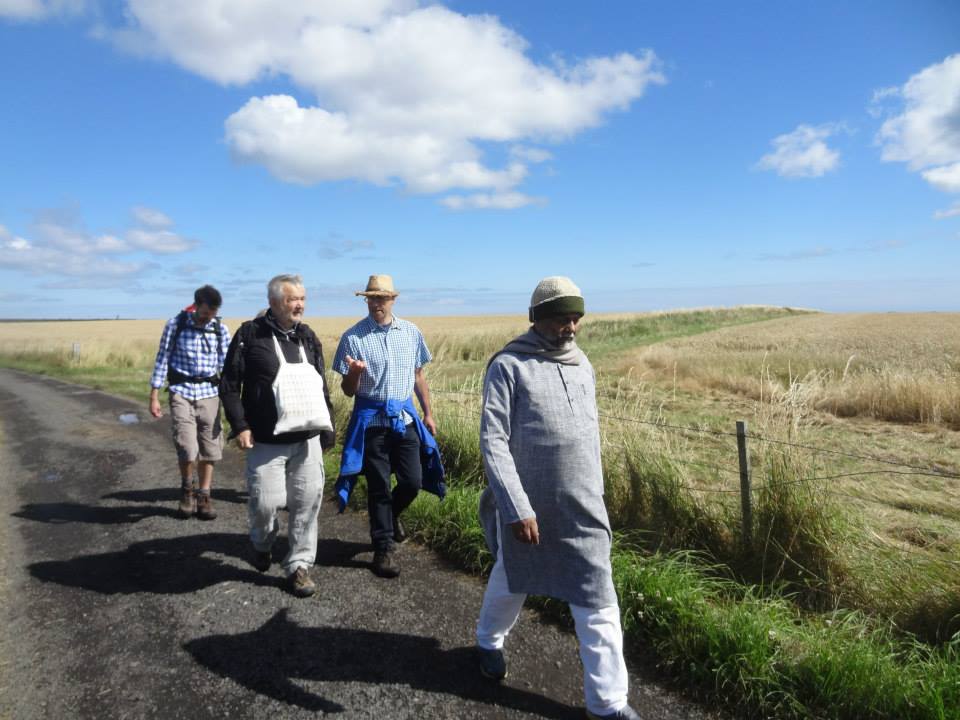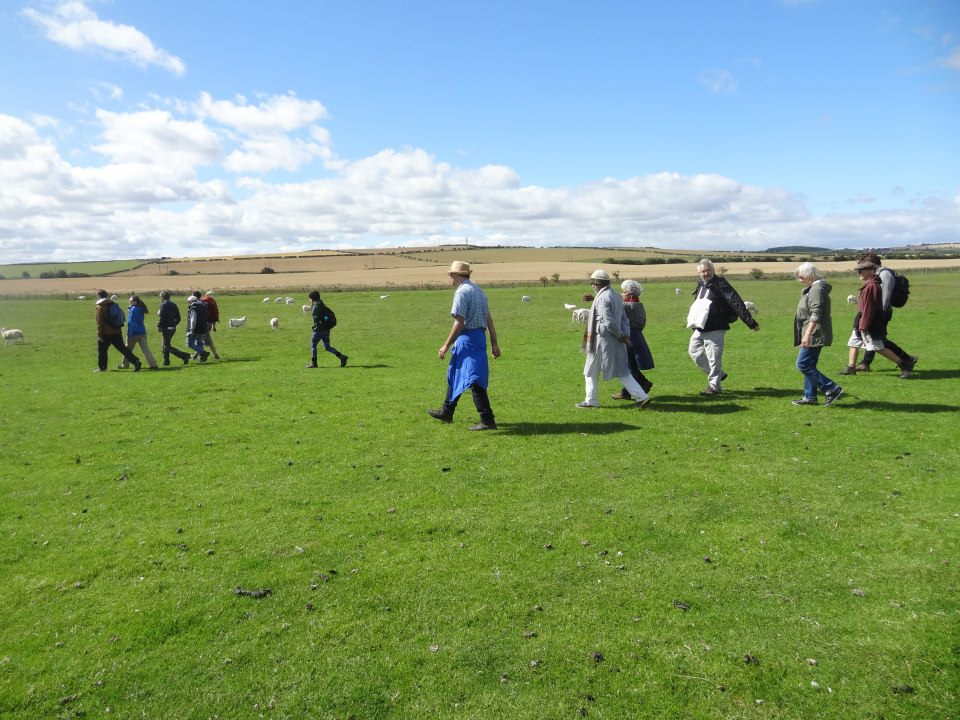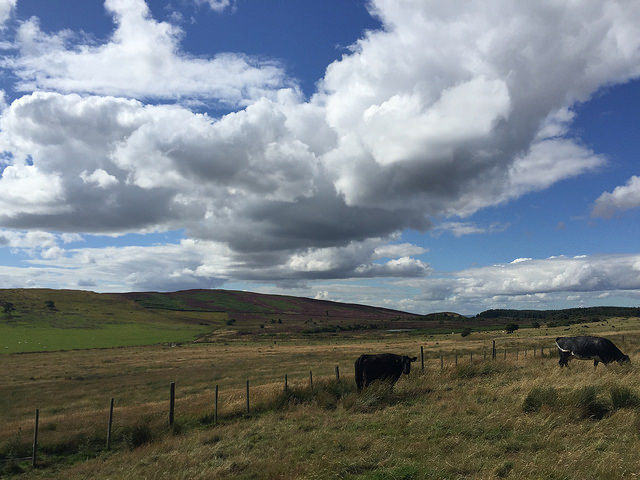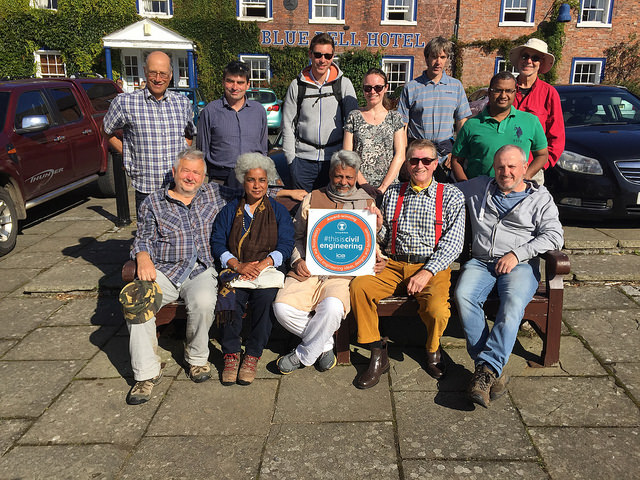Support the communities while reading of their success. All royalties to the projects!
With so much rain falling in monsoon, it can be hard to believe that this is a crucial time to save water! Yet no-one is more aware of this than the country’s farmers. Many have endured challenging water shortages as a result of severe drought this year, and know that this is one of the most important times to collect, save and give thanks for precious rainfall. Our farmers in Bundelkhand are especially grateful to be receiving the rains this year, thanks to a new rainwater harvesting project completed just in time for the monsoon! Read more of this post..
The Global Water School will
Make available proven, local wisdom to resolve floods and droughts for communities to take action in their regions.
Provide a scientific understanding of the long term impact of natural catchment measures for their regions.
Provide step by step guidance on raising awareness, galvanising their communities and implementing necessary measures to protect and rejuvenate local catchments.
Read more here
The World Water Week 2015 in Stockholm was special – our Flow Partnership member, Rajendra Singh of TBS India, was awarded the World Water Prize 2015 by King Carl XVI Gustaf of Sweden.
It was a week full of exciting meetings and possibilities, powerful talks by very savvy ‘water people’ and even included the follow-on World Water Walk for Peace – attended by almost 800 people!
King Carl XVI Gustaf of Sweden gives Rajendra Singh the World Water Prize 2015
At the Royal Banquet
World Water Peace Walk - Stockholm
Flow Partnership members- Minni Jain, Rajendra Singh and Philip Franses
A derelict coal mining landscape of over 70 hectares has been rejuvenated by the community into a beautiful country park – loved and used by its local communities and neighbourhood. This work is a labour of love and if taken further to the next level – will help stop flooding in the area.
A visit to a community project highlighted the energy and will present in community groups who are seeking local, grass-roots solutions to resolve persistent and continuous flooding of their villages.
Politicians, business people, scientists and catchment partnerships exchanging ideas about the work currently being done in Scotland and how its impact can be amplified.
A highlight of the week was a visit to Aberdeen organised by our partners Marc Stutter and Mark Wilkinson of the James Hutton Institute. They introduced us to The Dee Catchment Partnership. On day one we had a field trip to see all the catchment work on the River Dee, a river whose course was dramatically altered during the Industrial Revolution, creating havoc in the catchment since then and has since seen the effectiveness of returning the river to its natural meandering course.
We also saw the efforts to re- meander the Logie Burn as it has now been proven that straightening the paths of rivers contributes to floods.
World Water Peace Walk participants met at Holy Island, were given a blessing by Vicar Paul Collins and then walked the 15 miles to Belford. The Water Peace Walks are a brain child of World Water Prize winner 2015 and Flow Partnership member, Rajendra Singh of India (read about his project TBS here). His motivation is to avert global conflict over water and bring world peace through actively encouraging people to take steps into managing their water sources wisely.
A discussion over lunch in the ‘natural classroom’ about water and its relation to climate change – produced powerful ways forward for the group.
On arrival in Belford we were met and welcomed by champion of the Belford project and long time resident – Geoff O’Connell with the plaque proudly displayed.
The University of Newcastle held a seminar on Holding Water, organised by Flow Partnership member Paul Quinn, who has recently won the ICE Award for their flagship project in Belford (read about Belford here)
The key speakers at this event were Rajendra Singh from India, Michal Kravcik from Slovakia, Paul Quinn from the UK, Marc Stutter from Scotland, Paul Muto from Natural England and Minni Jain from the UK.
It was very encouraging to see that many of the people attending the conference were at a Local Council and Catchment level and they were already finding ways of introducing these natural catchment measures wherever possible. Paul Quinn has done a great job in using Belford as a working prototype.
The Flow Partnership Team outside Newcastle University.
From left to right: Marc Stutter (JHI, Scotland), Rajendra Singh (TBS, India), Philip Franses , Minni Jain , Richard Widows and Paul Quinn (Newcastle University)
Watch video here:
http://www.parliamentlive.tv/Event/Index/665761fd-7307-4074-a5d6-ab5a6ff1e87e
At 13:16:51 minutes/seconds (time on the clock of the video) is the speech by Lord Stone of Blackheath commending Flow Partnership and then the response of the minister Lord Gardiner of Kimble at 13.52 mins
Join us for our first World Water Walk
For more information about World Water Peace Walks, click here.
Donate to the running of the World Water Peace Walks:
Meeting like minds. Michal shows us his Natural Catchment Restoration Measures.
Flow Partnership member, Paul Quinn (second from left in photo) and his partners and team win the prestigious ICE award for their iconic BELFORD PROJECT (read about project on our website here)
The Institution of Civil Engineers (ICE) North East has highlighted projects from all across the region with accolades in this year’s prestigious Robert Stephenson Awards.The awards were presented by Professor David Balmforth, the President of the Institution of Civil Engineers (ICE), at the ICE North East’s annual dinner.
The Small Projects category was won by the Environment Agency, alongside contractor AMCO and researchers at Newcastle University for the Belford Natural Flood Management Scheme, in Northumberland. The awards judges were full of praise for the winning and commended projects.
Small Projects category:
WINNER: Belford Natural Flood Management Scheme, Northumberland
Client: Environment Agency
Research organisation: Newcastle University
Contractor: AMCO
Phase 2 designer: Environment Agency
Judges said “An excellent example of collaboration between academia and the statutory bodies to develop a new approach for managing flood risk. The outcome being a cost effective, environmentally sustainable, simple, flexible solution utilising ‘low technology’ that blends with the rural setting. The scheme has achieved both national and international recognition via the technical press and public media, whilst providing long-term benefits to the local community.”
JUST RELEASED!
Lord Stone presented the benefits of community-driven holistic water management to the House of Lords.







